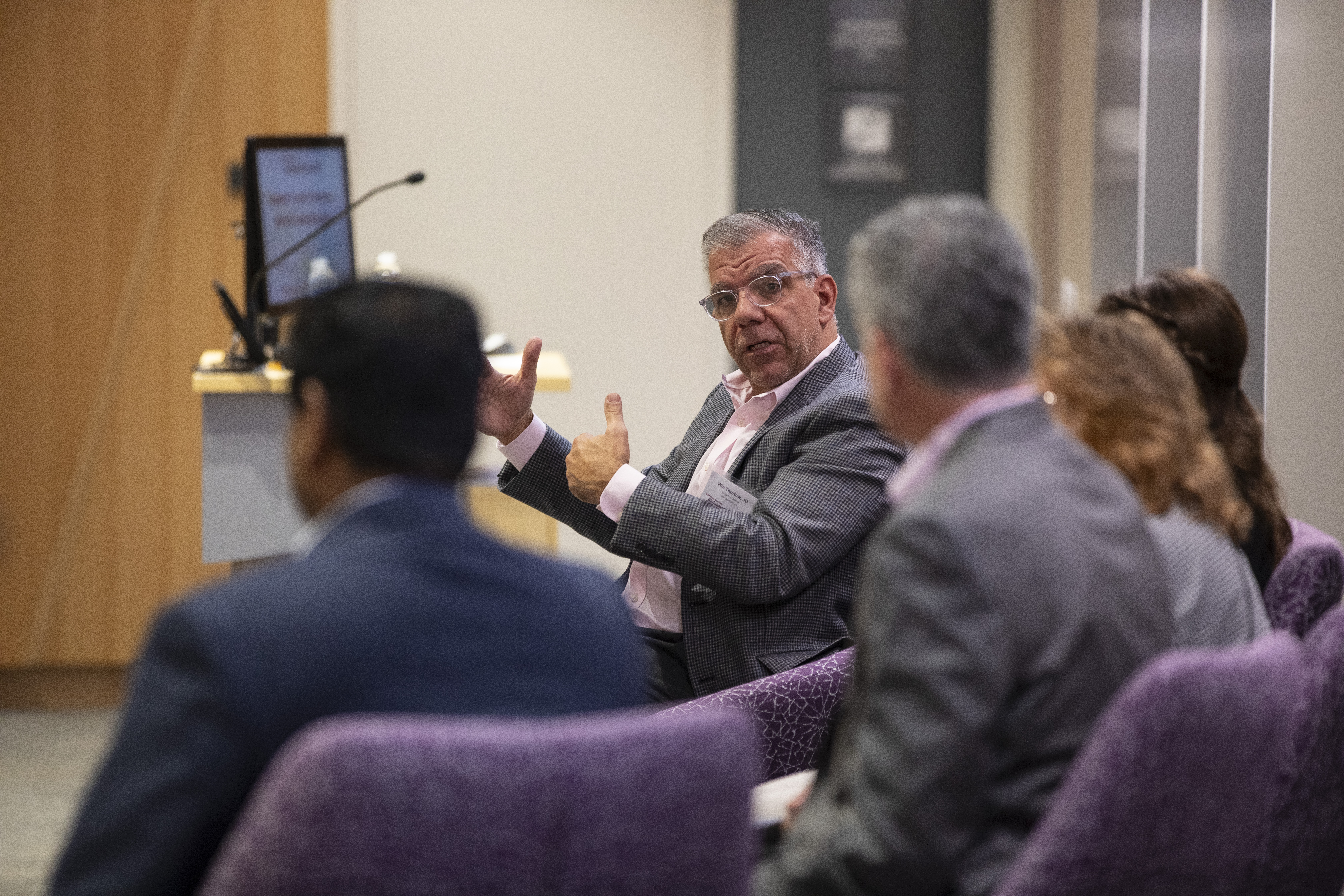
Win Thurlow of LifeSciences NY moderates a panel discussion during BioInnovation Forum 2023. (Photo: Patrick Dodson, University at Albany)
The creation of a “biotech ecosystem” in the Capital Region was the focus of the second BioInnovation Forum, as speakers talked about the promise of bringing together academic and industrial partners to leverage each other’s strengths and create marketable opportunities.
Close to 100 people attended the event, held at the University at Albany’s ETEC building on Oct. 18. Dr. Crystal Leach, director of the National Science Foundation’s Industry-University Cooperative Research Centers (IUCRC) program, delivered the keynote, followed by panels of regional experts and those who have launched valuable initiatives by engaging both business and academia. In addition to UAlbany, event sponsors were ACPHS, Albany Medical College, the Lally School of Management at Rensselaer, Center for Economic Growth and Empire State Development.
Dr. Leach started the conversation with a comprehensive look at the IUCRC program and its benefits to industry, academia and government. She reminded participants that partnerships between industry and academia are not quick fixes; fruitful ones are multifaceted and take time and energy go cultivate.
“It takes time to build partnerships,” Leach said. “When they pay off, it’s because there’s so many touchpoints, so many leverages you can get. … The best innovation happens when the most diverse set of minds is at the table.”
A panel of regional experts who followed Leach talked about the foundations for successful partnerships, and highlighted the cultural differences between academia and industry that impede their effectiveness. The panel was moderated by Win Thurlow, executive director of LifeSciencesNY, a Syracuse-based association of pharmaceutical, biotechnology and medical technology companies, suppliers, service providers and research universities.
Among the panel’s topics was a difference in how innovation is perceived in each sphere. In the academy, it is sometimes an end in itself; that’s not the case in industry.
“What good is an invention if no one can use it?” summed up panelist Kristina Roberts, the business manager at StemCultures, a Rensselaer-based company affiliated with the research-oriented Neural Stem Cell Institute.
Eric Ledet, vice president of research and development at the Center for Disability Services New York’s Health Innovation Incubator & Technology, decried the approach of some academic researchers who acquire patents to bolster a résumé.
“The end game is not getting a patent,” Ledet said. “It’s having that patent protect products that go to market.”
Academic researchers are not always the best ones to decide if their ideas are marketable, said Molly Zimmerman, managing director of the New York State Science & Technology Law Center at Syracuse University.
“Campuses need a vetting process to determine which ones have monetizing possibilities – which shouldn’t be up to the inventor,” she said.
The panel also discussed workforce concerns for the biotech industry. Dr. Sripathy Venkatrama, head of global R&D operations at Albany-based Curia Global, said while employees could develop critical skills on the job in manufacturing, others who support drug development require highly specialized educational backgrounds.
The BioInnovation Forum is an annual event whose location rotates among the sponsors each year.

